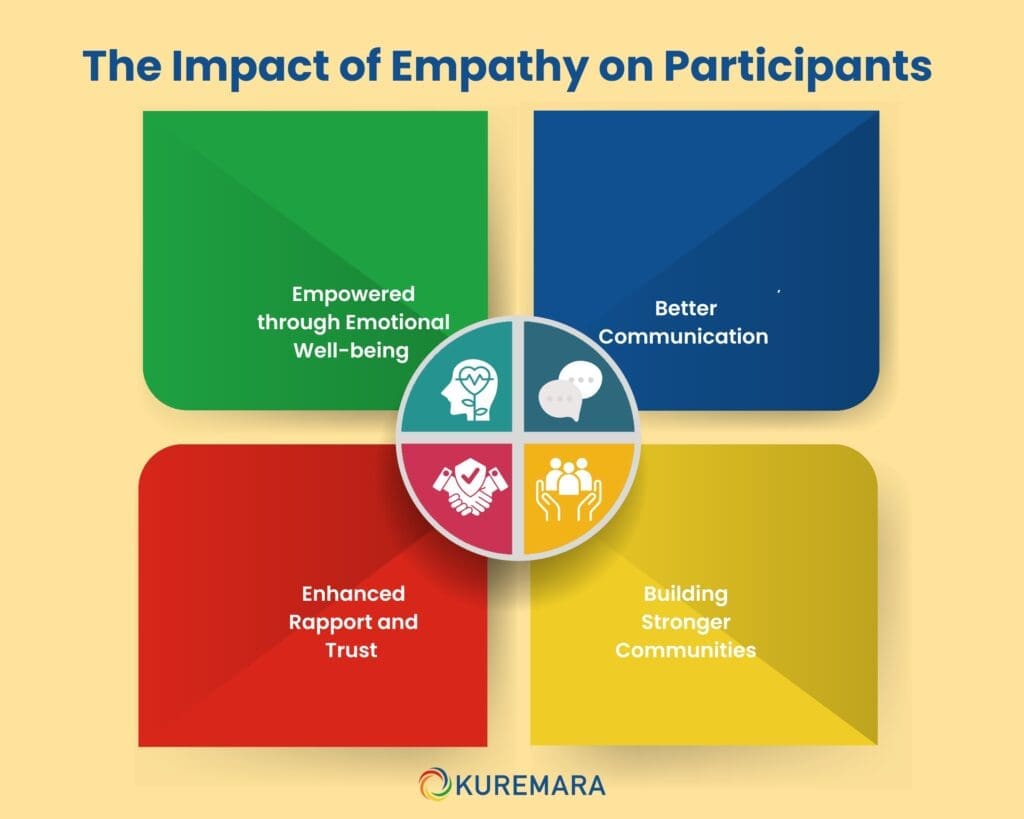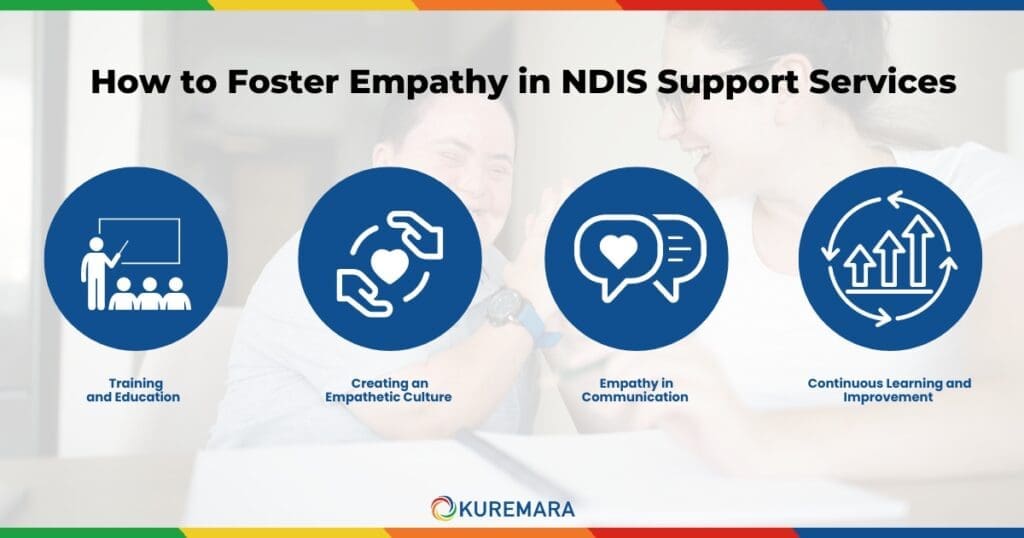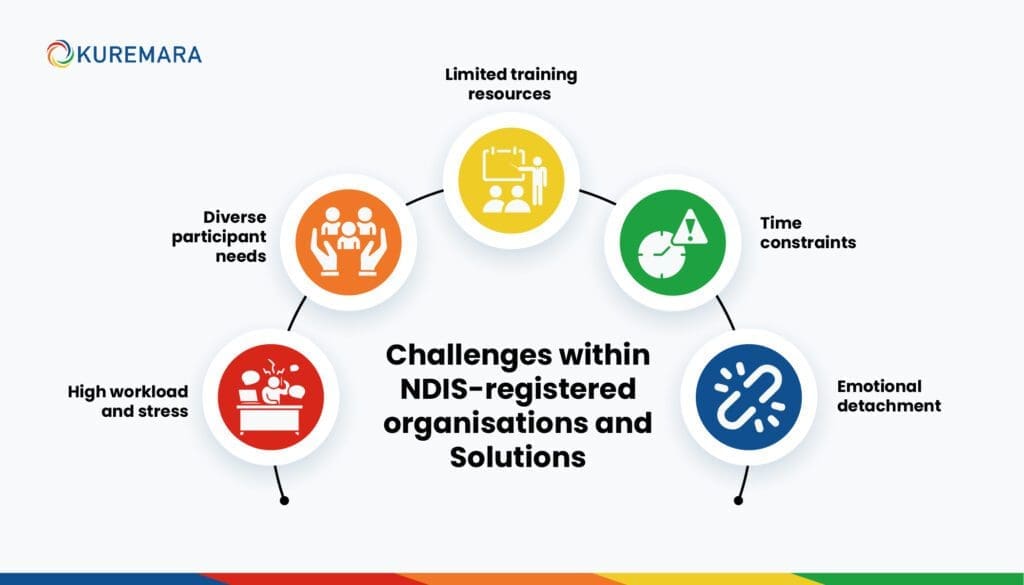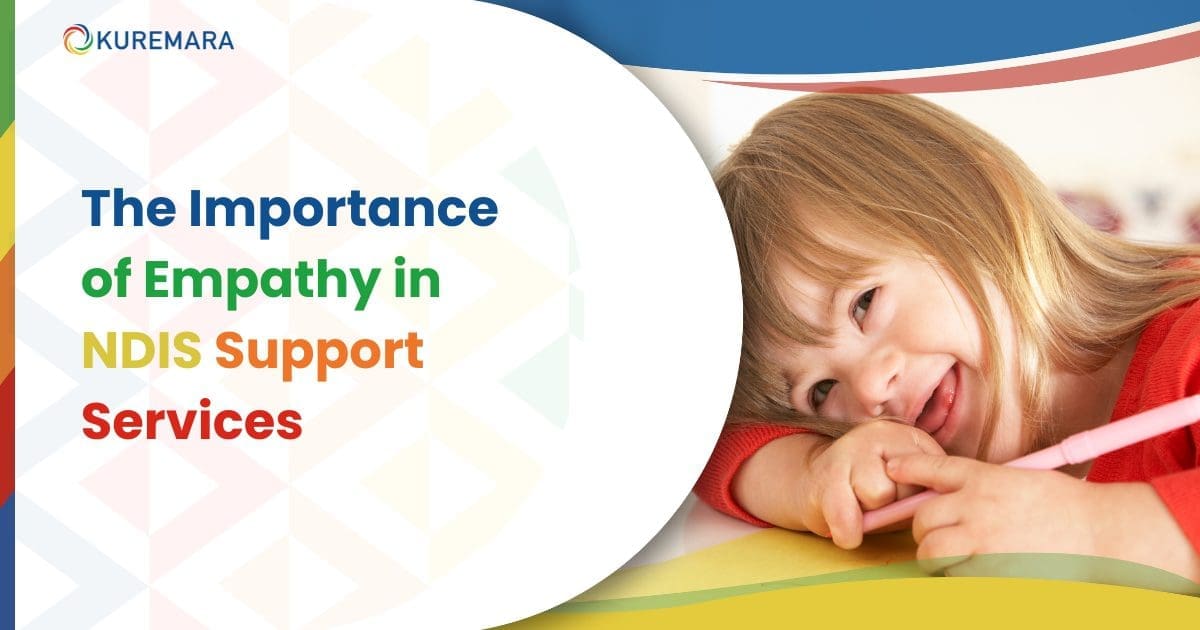Support work requires empathy as a professional necessity. It refers to a crucial skill that differentiates proficient support workers from the ordinary. Exceptional support workers do not just listen but understand and making them efficient at identifying individual needs and preferences is empathy. This character is a fundamental aspect of effective support services especially under the National Disability Insurance Scheme (NDIS). Building empathy is vital for support workers in communicating effectively and creating meaningful connections with participants.
National Disability Insurance Scheme is the Australian government initiative prepared to provide funding to individuals with disabilities. In NDIS services, the role of empathy cannot be exaggerated. This aspect directly impacts the quality of care and overall well-being given to participants.
Understanding Empathy
Empathy can be defined as the ability to understand another’s perspective. You can feel, understand and maybe share to respond to their experience. This important aspect of empathy is pivotal in support services given by the NDIS Registered Provider as it fosters a safe environment where the participants can openly share their experiences, challenges, aspirations and needs. The participants need to be understood, respected and valued can happen only through this process. Support workers can offer emotional support and advocate their concerns for people’s rights.
Empathy in the Context of NDIS
Support coordinators work with participants who undergo diverse challenges due to disability. They need to ensure an empathetic and compassionate approach towards the participants to make them feel valued and respected. Understanding the unique needs, preferences and challenges of each participant can allow support workers to develop personalised care plans to meet specific goals and improve quality of life.
Empathetic interactions can aid in forming a trustworthy space where the participants feel at home to share their ideas and concerns. Trust is required to initiate effective communication and collaboration. There needs to be strong, positive relationships between support workers and participants. Empathy can enable long-term engagement and successful partnerships.
Support workers need to listen actively, paying attention to the verbal and non-verbal signs of the participants. They need to respond in clear, compassionate and respectful manner addressing the participants needs efficiently. Participants’ emotional challenges can be reduced by providing reassurance and emotional comfort. Empathy will help participants develop a positive outlook and be empowered and motivated to achieve their tasks and aspirations.
The Impact of Empathy on Participants

Empathy can never be undermined while dealing with NDIS participants. It has a profound and positive impact on them.
Empowered through Emotional Well-being
Support workers can make participants feel valued and understood by being empathetic. Participants will enjoy this emotional validation, and their self-esteem will be boosted, and overall emotional well-being will be positively enhanced. They will have reduced anxiety and stress. NDIS support services can genuinely care about the participants’ feelings and experiences can boost their sense of comfort and security.
Better Communication
Through open and honest dialogue, participants can feel safe to express their thoughts and concerns to support workers. This can lay the foundation for an effective and honest communication. Support workers can better understand the specific needs and preferences of participants addressing them accurately leading to tailored support plans. Participants will be greatly satisfied when they are understood and cared for.
Enhanced Rapport and Trust
NDIS support workers can build trust with the participants through empathy. When you make the participants feel understood and valued, they will open up and share their thoughts better. Participants will actively engage in their plans when they are better supported. It will lead to a higher quality of life.
Building Stronger Communities
You can build strengthen your relationships with your participants through empathy and create better and positive experiences. Empathy can break down barriers and develop a sense of belonging within the community. It can enhance relationships between participants, their families, carers and the support providers.
How to Foster Empathy in NDIS Support Services

Empathy is vital in disability support services that is participant centred. This puts the participant’s preferences, values and needs at the forefront of healthcare decisions. Consistent training should be provided for support workers to empower them to be empathetic. This training is essential for healthcare education and professional development.
Training and Education
Training programs designed to specifically enhance empathy can help service providers and support workers to develop key empathetic skills such as active listening, effective communication and emotional resilience. Enabled with these skills, support workers can understand and address the NDIS participants’ unique needs.
Training for empathy proves the improvement in overall quality of service. The support workers are better equipped to create supportive and trusting relationships with participants leading to effective and personalised care. Service providers need to recognise and respond to the participants’ emotional needs.
Support providers will be able to respect and understand diverse backgrounds when they are empathetic. Training on cultural awareness and sensitivity for support workers will lead to inclusive and interactive communications.
It is to be noted that support providers who are more empathetic are adaptable and better at problem solving. They can proactively anticipate participants’ needs and address them proactively.
Creating an Empathetic Culture
To create an empathetic culture within a NDIS-registered organisations, leaders must strategically model empathetic behaviour. It sets a tone for the organisation with the employees showing understanding and address their concerns. Policies with anti-discrimination aspect and flexibility need to promote inclusivity and respect as well as support for mental health and well-being.
Creating open and safe communication channels where participants can express their thoughts and feelings without fear of judgment. Establishing support systems such as counselling services, support groups and mentorship programs can help participants deal with stress and develop stronger empathetic connections. Also, community involvement can provide valuable insights and strengthen the organisation’s empathetic culture.
Empathy in Communication
Empathetic communication builds trust and rapport between support providers, support workers and participants. A positive relationship is created when participants feel valued, heard and understood. When support workers understand the participants’ emotions and perspectives, you can recognise the root cause of problems and provide more personalised solutions. Empathy can help reduce stress and anxiety by giving reassurance and understanding, making the interaction more pleasant and productive.
Participants will provide more positive referrals when they are treated with empathy and respect. When they feel understood, they will open up to provide more accurate information leading to better support. Support workers can use empathy to make participants feel special and appreciated, thus enhancing their overall experience.
Continuous Learning and Improvement
When you give time to continuous learning, you are geared to improvement that is essential for maintaining empathy in providing support. Continuous learning can help support workers stay updated with the best practices and techniques for empathetic communication. They become better equipped to handle participants’ interactions effectively. Through learning, you can develop emotional intelligence crucial to understand participants who are from diverse backgrounds with different needs and aspirations. You can learn new problem-solving skills and approaches to address problems more effectively. Not only can you handle problems faster, but you can assure your participants that their concerns are being handled seriously and with care.
You can deal with difficult situations in a manner that is not stressful. Building strategies that can maintain empathy and composure in tough situations will help you. You can identify areas for growth where you can be more empathetic and even adjust your approach. Also, fostering a culture of empathy will make participants feel valued in their development. Support workers can learn new skills and improve existing ones to keep motivation and role engagement on a high scale. This motivation is essential to maintain a high level of empathy and enthusiasm in interacting with participants.
Challenges within NDIS-registered organisations and Solutions

Fostering empathy while providing support can be challenging. But understanding these challenges and how to overcome them is essential to creating an empathetic environment.
Support providers often face challenges while dealing with individuals with disabilities:
High workload and stress
Support workers often deal with high workload of calls and difficult situations. This would lead to stress and burnout, also diminishing the ability to empathise. To dealt with this issue, you can implement regular breaks, look at mental health support, and encourage a healthy work-life balance. Stress management training will promote a supportive work culture.
Diverse participant needs
Participants come from various cultural backgrounds with difference in communication styles can make it challenging to empathise effectively. But when you provide cultural sensitivity training and encourage support workers to learn about different cultures and communication preferences, it helps in understanding and respect diverse perspectives.
Limited training resources
When there is lack of proper training, support workers may struggle to understand and practice empathetic communication. To deal with this, comprehensive traning programs focusing on developing emotional intelligence, active listening and empathy can reinforce empathy skills.
Time constraints
Support workers have limited time to deal with issues thus making it difficult to engage in empathetic conversations. Streamlining processes and providing agents with tools can help them resolve issues more efficiently.
Emotional detachment
Emotional exhaustion can reduce support workers ability to empathise with participants. But encouraging a balance between empathy and professional detachment can help manage emotions and maintain boundaries while being empathetic.
Conclusion
Empathy is not only one of the very desirable virtues but a basic requirement in NDIS support services. This is the foundation that helps make meaningful connections between the support workers and participants and hence ensures care is efficiently given with compassion and individualisation. Encouraging empathy will help the support worker to improve communication, establish trust, and empower the participant to ensure better emotional well-being and quality of life.
Empathy also provides an instrumental function in the development of stronger communities within the framework of the NDIS, thereby promoting inclusion. This establishes a culture where participants feel valued and understood. It is through continuous learning and cultural sensitivity training that the support workers may either sustain or strengthen these empathetic skills amidst other challenging issues such as heavy workloads or diversified participant needs.
While giving NDIS support services, NDIS service provider Kuremara reflects on how one small approach—empathy—brings a world of difference to participants. If you choose to focus on empathy in your support services, you will empower an environment that is supportive and understanding and very efficient for all persons involved.
 care@kuremara.com.au
care@kuremara.com.au





